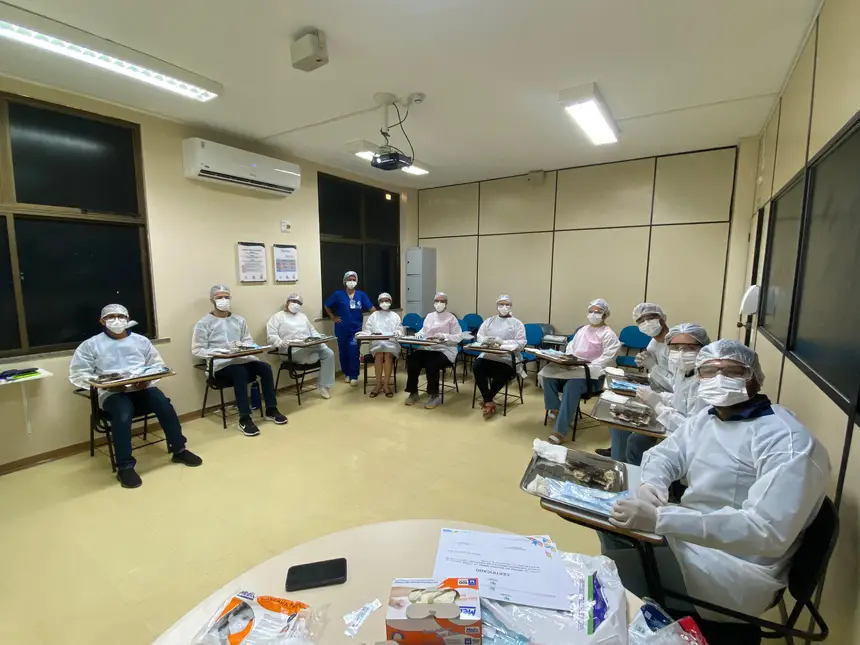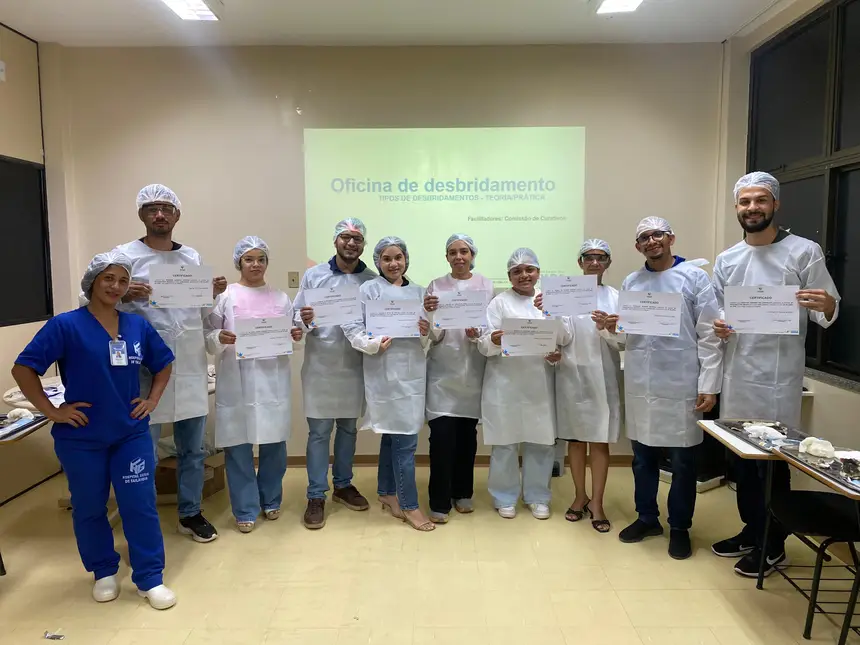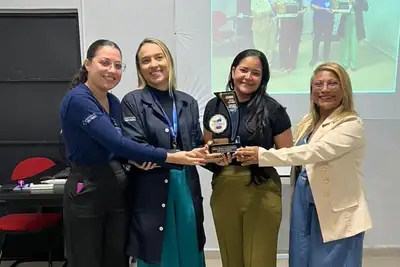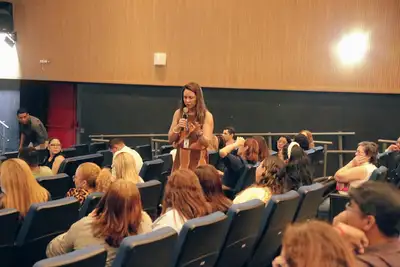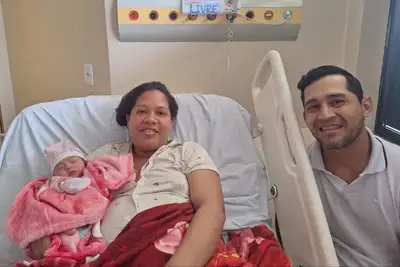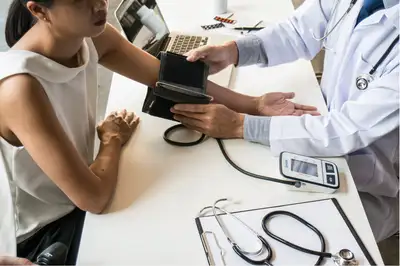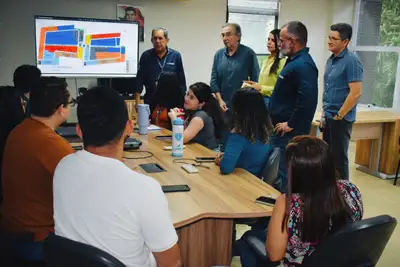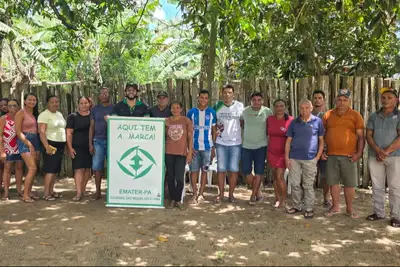HGT promotes practical workshop and strengthens the assistance provided to patients
The course was structured in theoretical and practical moments, aiming to ensure that participants understood the fundamentals of each technique presented
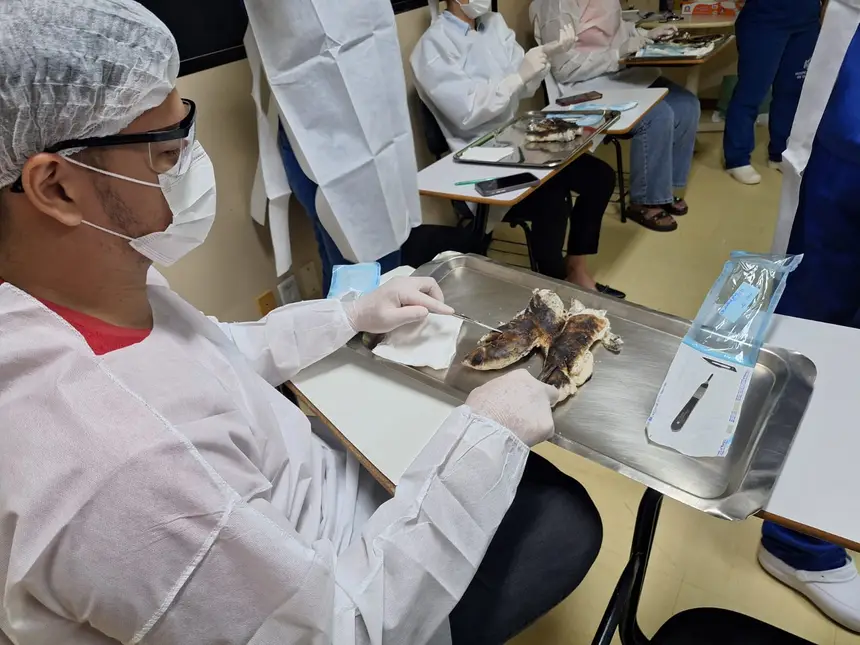
The General Hospital of Tailândia (HGT), through its Wound Care Committee, held a practical workshop on mechanical and instrumental debridement on July 2 and 3. About 30 nursing professionals participated in the training, which aimed to further qualify the teams to perform these procedures safely and standardized for users in the region.
The training took place over the two afternoons in the auditorium of the hospital unit, targeting all nurses working in various sectors of the hospital. The president of the committee and facilitator of the activity, nurse Monique Rocha, led the theoretical and practical activities.
According to Monique Rocha, debridement is an important component in wound management and can be defined as the act of removing necrotic material, devitalized tissue, crusts, infected tissue, hyperkeratosis, foreign bodies, bone fragments, microorganisms, or any other type of biological load from a wound, with the aim of promoting healing.
During the course, two types of debridement were addressed. Mechanical debridement, which consists of the removal of tissues through irrigation, gauze, special dressings, or other physical methods; and instrumental debridement, performed with the aid of forceps, scissors, or a scalpel blade, for selective removal of devitalized tissue.
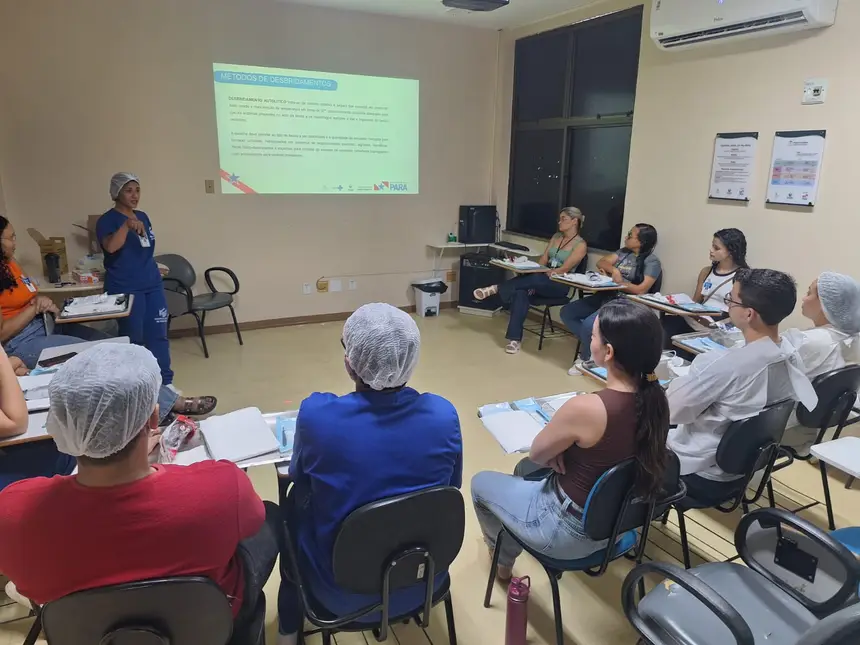
In the practical part, the professionals performed instrumental debridement on a burned pig's foot, which was used as a model to simulate skin with necrosis. The activity aimed to demonstrate the technique of tissue removal using forceps and a scalpel blade, allowing practice in a controlled environment.
One of the nurses who participated in the proposed activity was Jônatas Quadra, who works in the Emergency Department of the hospital unit. The professional emphasized the importance of the training. “The classes were beneficial, with a solid theoretical approach combined with practice, and highlighted the clarity of the instructor's explanations, as well as the importance of the opportunity to handle the instruments and simulate the procedures. Now, I feel even more confident and secure to apply the techniques in my professional routine,” said the nurse.
Nurse Monique explained that the course was structured in theoretical and practical moments, aiming to ensure that participants understood the fundamentals of each technique and could practice their application in a supervised manner.
Approval – Patient Rodrigo Oliveira, 56 years old, was hospitalized in the medical clinic of HGT since June 20. During his hospitalization, he required continuous monitoring from the nursing team, with special attention to dressing care. “During the time I was here, I was always well taken care of, and the team did the dressings properly on my legs. It is very good to know that they are always seeking more knowledge, to improve what they already know, and to do a good job for us who need their care,” said the patient.
Structure - The General Hospital of Tailândia has 51 beds and maintains an Intensive Care Unit (ICU) with nine beds, six for adults and three for pediatrics. Users who depend on the Unified Health System (SUS) have access to the services offered by HGT through the Municipal Regulation Center, and to emergency services on demand or referred by Samu, Military Fire Brigade, and Highway Police.


